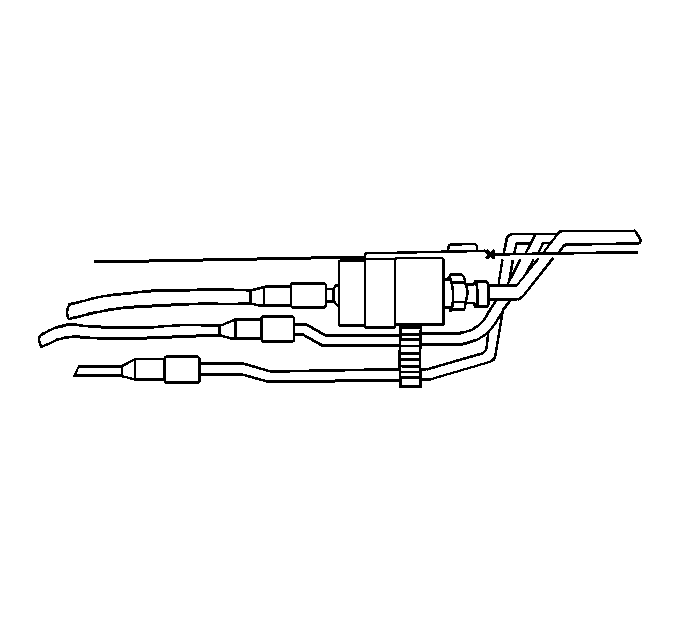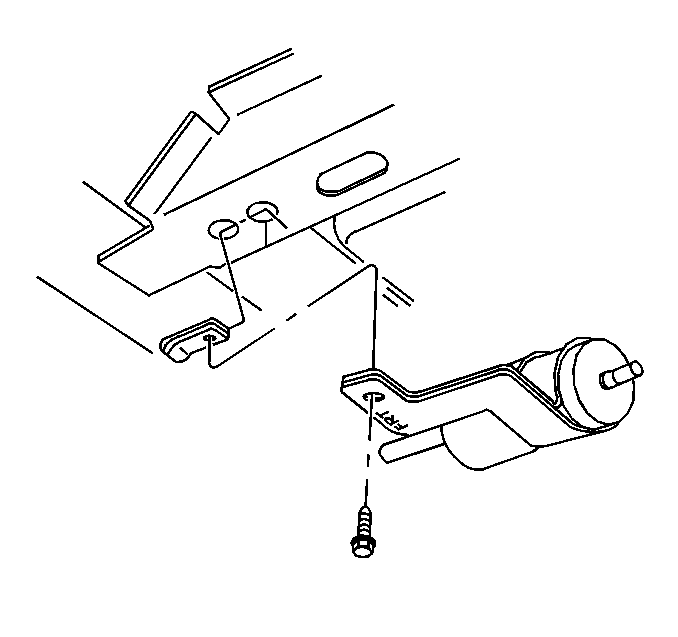Removal Procedure
Important: There is no service interval for in-pipe fuel filter replacement. Only replace the in-pipe fuel filter if it is restricted.
- Relieve the fuel system pressure. Refer to Fuel Pressure Relief .
- Raise the vehicle.
- Remove the quick-connect fitting at the inlet of the in-pipe fuel filter. Refer to Servicing Quick Connect Fittings .
- Remove the threaded fitting at the outlet of the in-pipe fuel filter.
- Drain any remaining fuel into an approved gasoline container.
- Remove the in-pipe fuel filter mounting bracket bolt.
- Remove the in-pipe fuel filter from the in-pipe fuel filter mounting bracket.


Installation Procedure
Notice: Use the correct fastener in the correct location. Replacement fasteners must be the correct part number for that application. Fasteners requiring replacement or fasteners requiring the use of thread locking compound or sealant are identified in the service procedure. Do not use paints, lubricants, or corrosion inhibitors on fasteners or fastener joint surfaces unless specified. These coatings affect fastener torque and joint clamping force and may damage the fastener. Use the correct tightening sequence and specifications when installing fasteners in order to avoid damage to parts and systems.
- Remove the protective caps from the new in-pipe fuel filter.
- Install the new plastic connector retainer on the in-pipe fuel filter inlet.
- Slide the in-pipe fuel filter into the in-pipe fuel filter mounting bracket.
- Install the in-pipe fuel filter
- Install the in-pipe fuel filter mounting bracket bolt.
- Install the quick-connect fitting at the inlet of the in-pipe fuel filter. Refer to Servicing Quick Connect Fittings .
- Install the threaded fitting at the outlet of the in-pipe fuel filter.
- Lower the vehicle.
- Tighten the fuel tank filler pipe cap.
- Install the negative battery cable.


Tighten
Use a back-up wrench in order to prevent the in-pipe fuel filter from
turning. Tighten the in -pipe fuel filter outlet nut to 30 N·m
(22 lb ft).
